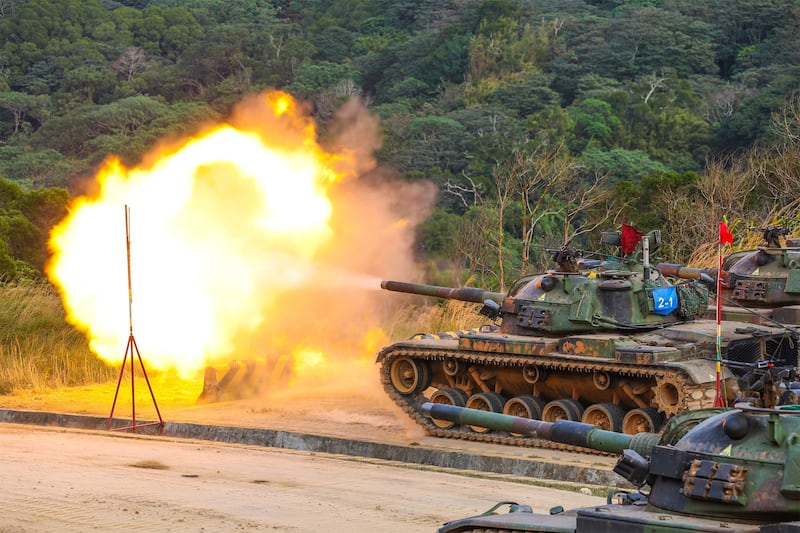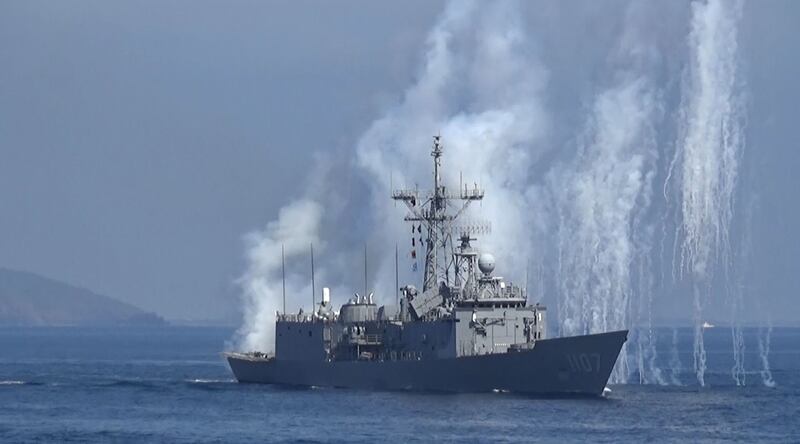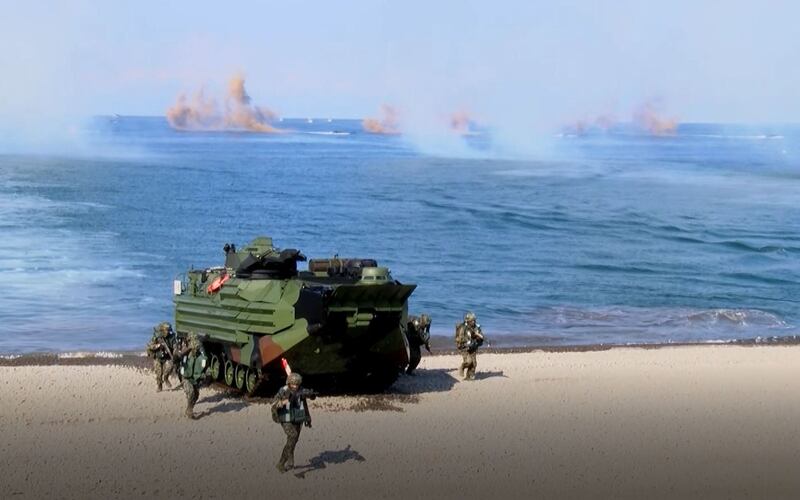The United States cannot win a war against China over Taiwan, four Australian defense experts have said in a series of interviews conducted by the Australian Broadcasting Corporation.
The national broadcaster carried out the interviews with "four of Australia's most experienced military strategists" who all "have held the highest security clearances that it's possible to have" and have been involved in sensitive military operations.
Their opinions differ somewhat from a wargame developed by the influential Center for Strategic and International Studies (CSIS) in Washington D.C., in which American strategists said a U.S.-led coalition would defeat an invasion by China and maintain an autonomous Taiwan.
CSIS's ' The First Battle of the Next War: Wargaming a Chinese Invasion of Taiwan' launched early January also predicted that China would also suffer "high losses" that might destabilize Chinese Communist Party rule, even if Taiwan's economy would be left shattered and the U.S. global position would also be damaged for many years.
‘A costly stalemate’
Hugh White, former Deputy Secretary for Strategy and Intelligence in the Australian Department of Defence, said that a war between the U.S. and China over Taiwan would "probably be the biggest and most disruptive war the world has seen since 1945" as it would swiftly escalate into a full-scale regional maritime war.
The expert said America would neither be able to force Beijing to concede over Taiwan without using nuclear weapons nor be willing to risk Chinese nuclear retaliation for Taiwan's sake.
“I do not think there is any credible chance that America, with or without Australia's support, could win a war with China over Taiwan,” White said, adding that it would be a mistake for the U.S., and Australia, to get involved in such a war.
According to him, “by far the most likely outcome would be a costly stalemate in which both sides lost heavily but neither side could secure a decisive, war-winning advantage.”

Another analyst, Allan Behm, former head of the International Policy and Strategy Divisions of the Defence Department, shared a similar view.
“Were the U.S. and China to go to war over the next five to 10 years, the best scenario one might envisage for the U.S. is a stalemate,” Behm said.
However, given the rate at which the Chinese forces are developing, “a Chinese victory over the U.S. is the more likely outcome beyond 2035,” the expert warned.
Clinton Fernandes, a former intelligence officer with the Australian Army Intelligence Corps and now a professor at the University of New South Wales, said that in his opinion, President Joe Biden “will avoid a direct confrontation with China.”
"He would rather support Taiwan and enlist countries around the world in sanctioning or condemning China,” Fernandes said.
Cross-strait invasion or blockade?
Among war scenarios, a blockade of Taiwan may be more likely than a conventional invasion, according to the Australian experts.
It would be “a far cheaper and less risky way” for Beijing to achieve its objectives by establishing “a credible air and sea exclusion zone around Taiwan, and thereby put immense pressure on the Taiwanese to accept Beijing’s terms,” said Hugh White.

Allan Behm predicted a China-U.S. war over Taiwan “would begin as an air-sea war, with China seeking to impose punitive costs on the U.S. Navy and such U.S. Air Force units as were able to operate.”
“Assuming that China was eventually able to control the Taiwan Strait, it would deploy land forces to Taiwan … and then to occupy the country," he said.
Behm also warned that the impact on Australia of a war with China would be "profoundly and devastatingly different" from any other war since World War II.
Meanwhile, Clinton Fernandes said a blockade, when 80% of ships and aircraft are unable to pass, would be the most likely option.
“It means mine laying by air and naval units, particularly submarines, blockading ports, inspecting maritime traffic including commercial shipping, intercepting aircraft, and attacking adversary military forces as necessary,” he said.
"China's leaders could discreetly offer negotiations to Taiwan's leaders during a blockade before the risky step of ordering an amphibious invasion," said Fernandes.

Adm. (Ret.) Chris Barrie, former Chief of the Defence Force, forewarned that a war between U.S. and China is “likely to impoverish us all, it may even kill most of us if it goes nuclear".
"The fundamental assumption that we could win a war against China is wrong-headed and hawkish,” he said.
"Australia should use all the means at its disposal to avert a war with China,” the retired admiral added.
